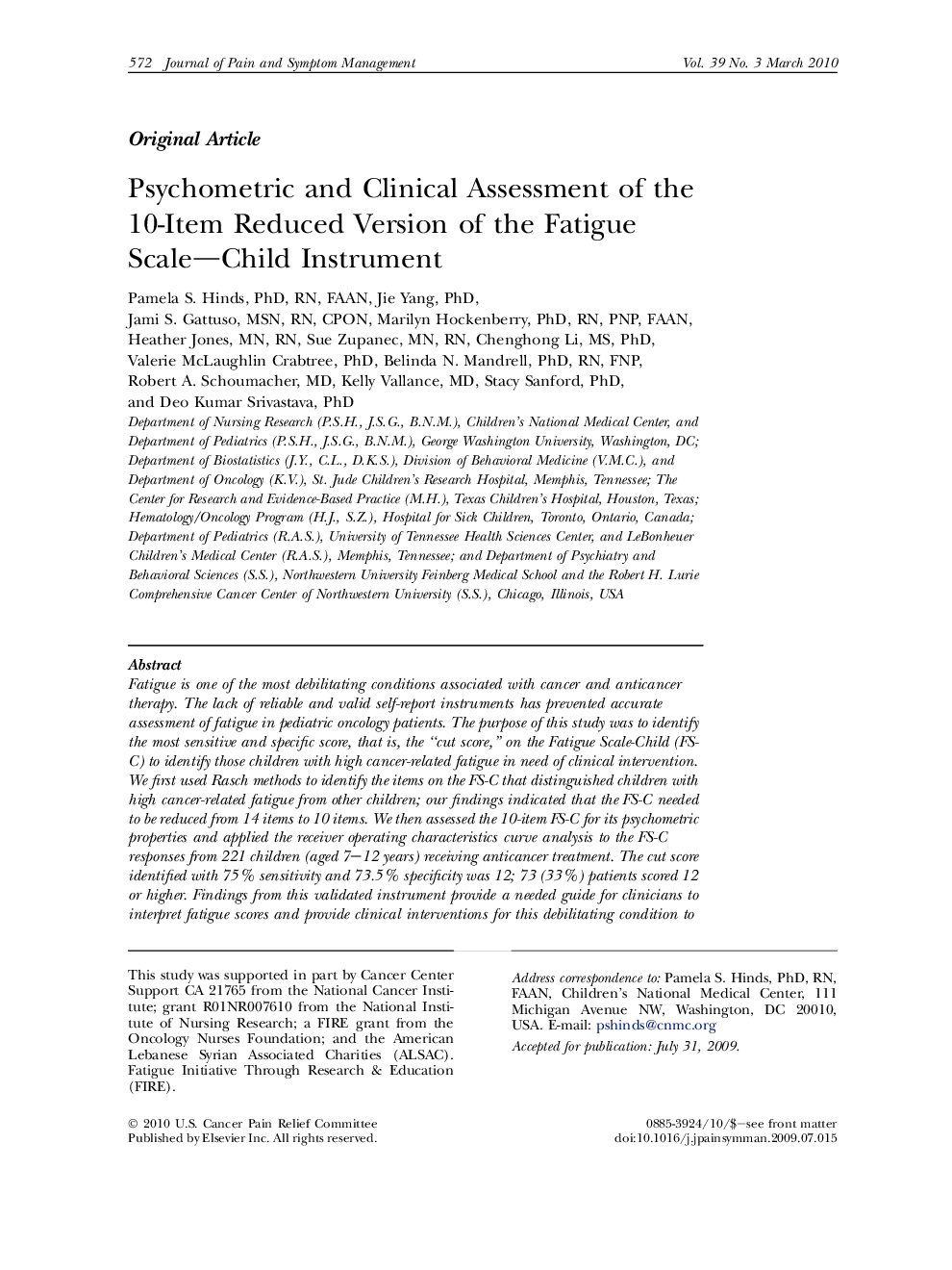| Article ID | Journal | Published Year | Pages | File Type |
|---|---|---|---|---|
| 2724523 | Journal of Pain and Symptom Management | 2010 | 7 Pages |
Fatigue is one of the most debilitating conditions associated with cancer and anticancer therapy. The lack of reliable and valid self-report instruments has prevented accurate assessment of fatigue in pediatric oncology patients. The purpose of this study was to identify the most sensitive and specific score, that is, the “cut score,” on the Fatigue Scale-Child (FS-C) to identify those children with high cancer-related fatigue in need of clinical intervention. We first used Rasch methods to identify the items on the FS-C that distinguished children with high cancer-related fatigue from other children; our findings indicated that the FS-C needed to be reduced from 14 items to 10 items. We then assessed the 10-item FS-C for its psychometric properties and applied the receiver operating characteristics curve analysis to the FS-C responses from 221 children (aged 7–12 years) receiving anticancer treatment. The cut score identified with 75% sensitivity and 73.5% specificity was 12; 73 (33%) patients scored 12 or higher. Findings from this validated instrument provide a needed guide for clinicians to interpret fatigue scores and provide clinical interventions for this debilitating condition to their pediatric patients with cancer.
